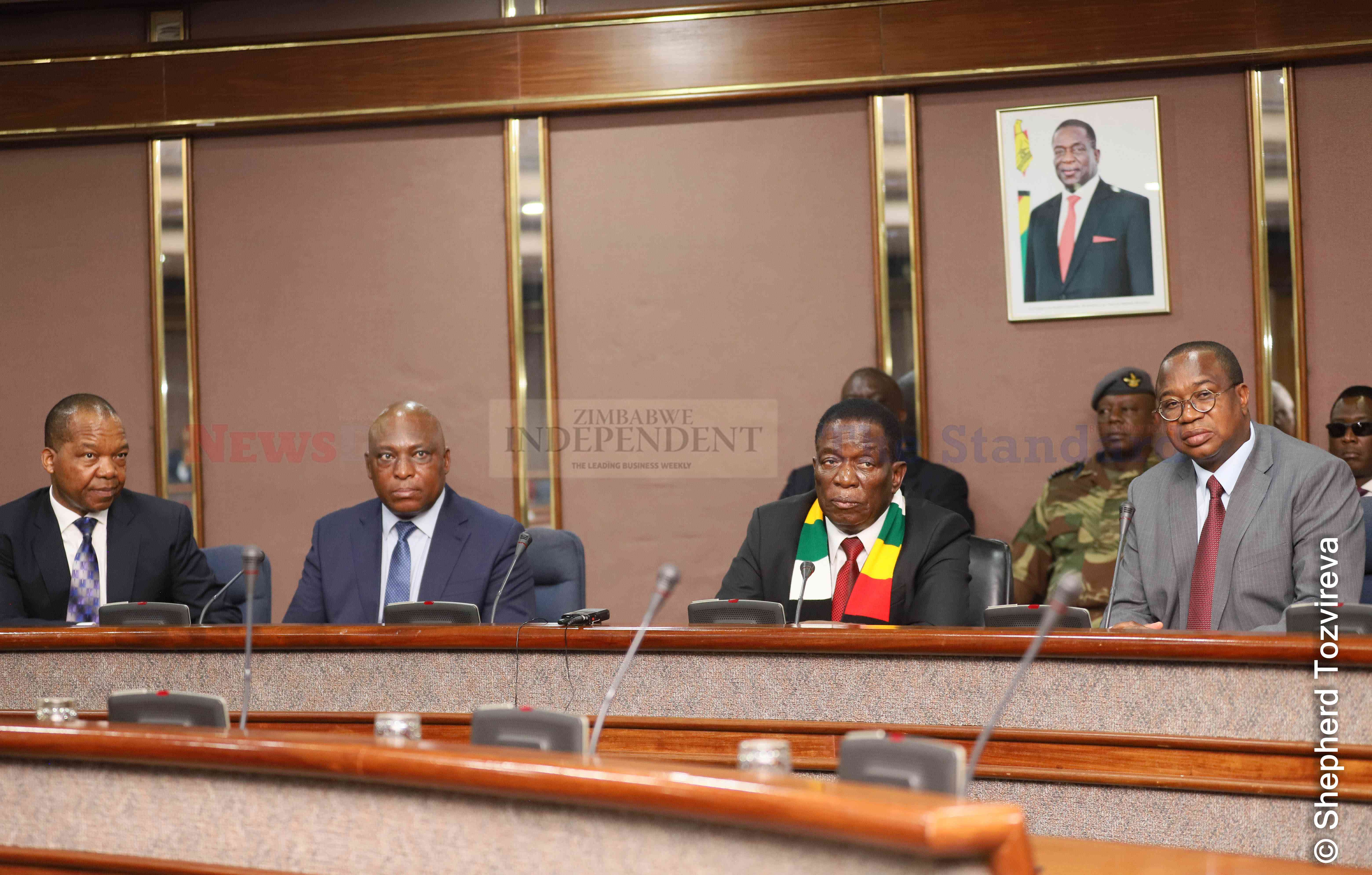
JOHN Mushayavanhu will today make his maiden Monetary Policy Statement (MPS) as central bank governor amid a weight of expectations as the economy tanks.
The veteran banker, on the job for a week after President Emmerson Mnangagwa fast-tracked his appointment by a month on the weight of the headwinds facing the economy, is probably the last throw of the dice by this administration to put the economy on an even keel.
The Zimdollar has depreciated sharply against the greenback amid calls for the redollarisation of the economy, five years after the return of the local unit.
Government has declared that the Zimdollar is here to stay and plans to unveil a structured currency backed by gold in a last ditch bid to stabilise the exchange rate.
The details of the structured currency will be contained in the MPS.
Eight of out 10 transactions in the country are being conducted in the greenback, according to national statistics agency, ZimStat. However, history has taught us that the success of currency reforms hinges on confidence.
And confidence building is not the sole domain of monetary policy. The whole machinery of government must function in a manner that bolsters confidence in the economy.
Housekeeping issues like observance of rule of law, the anti-corruption fight and politics have a bearing on the local currency.
- Zimpraise to release album Number 13
- Hyperinflation headache for accountants
- Zimpraise to release album Number 13
- Hyperinflation headache for accountants
Keep Reading
The currency called confidence has been missing, leaving Zimbabwe undertaking several currency reform exercises in the last 20 years.
Zimbabwe has travelled that path before with Sunrise 1 and 2 under which it slashed zeros, bearer cheques, agro cheques, bond notes, multi-currency and the dual currency regime, among others.
There have also been several measures put in place to bolster the local currency such as the introduction of gold coins and gold-backed digital tokens as open market operations instruments to suck excess local currency balances.
They were also designed to cater as a store of value and reduce reliance on the United States dollar.
These measures came after the local unit had lost the standard functions of money such as store of wealth and a medium of exchange.
The results have not been pleasing as the rout of the Zimdollar continues unabated.
It is a tough assignment for the new banks’ sheriff. However, the task is not insurmountable.
The solutions neither lie at 80 Samora Machel Avenue nor Mgandane Dlodlo Building, the home of the Finance, Economic Development and Investment Promotion ministry.
Business member organisations, academics, the churches and all interest groups have solutions to the problems bedevilling the economy. Hence they deserve an ear from monetary authorities.
Inflation is heading north and it appears it is not showing signs of retreating. Annual inflation quickened to 55,3% in March from 46,7% in February.
This administration has failed to garner the trust of the citizens, attributable to policy flip flop.
American statesman Abraham Lincoln emphasised the need to gain confidence.
“If once you forfeit the confidence of your fellow-citizens, you can never regain their respect and esteem,” he once said.
Mushayavanhu’s statement will either make or break his governorship.
Will he maintain a tough monetary policy stance that was supposed to contain inflation but failed in its tracks? Or will he be dovish in his approach to encourage borrowing in the economy? The market will be the final arbiter.






